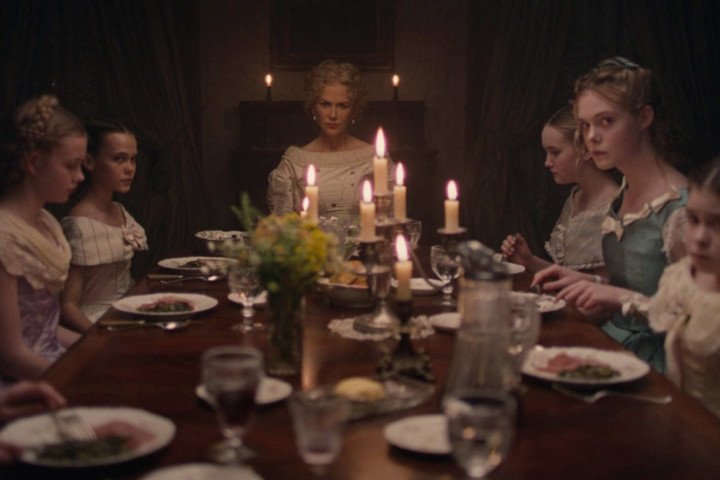 It’s been almost 15 years since I was first introduced to Clint Eastwood and Don Siegel’s 1971 psychosexual slice of soft-core Southern Gothic cinema, The Beguiled, in the midst of a film school class on Eastwood’s oeuvre. I was thoroughly unprepared for the film’s bizarre blend of eroticism and misogyny — what my professor at the time described as “a nasty little piece of work” — and something about it really stuck with me. It’s not a masterwork by any means, but it is a deeply unsettling picture that plumbs some preternaturally perverse depths, and I remember thinking that someone could do some very interesting things with a remake. After seeing Sofia Coppola’s take on the material, I think that potential’s still largely untapped.
It’s been almost 15 years since I was first introduced to Clint Eastwood and Don Siegel’s 1971 psychosexual slice of soft-core Southern Gothic cinema, The Beguiled, in the midst of a film school class on Eastwood’s oeuvre. I was thoroughly unprepared for the film’s bizarre blend of eroticism and misogyny — what my professor at the time described as “a nasty little piece of work” — and something about it really stuck with me. It’s not a masterwork by any means, but it is a deeply unsettling picture that plumbs some preternaturally perverse depths, and I remember thinking that someone could do some very interesting things with a remake. After seeing Sofia Coppola’s take on the material, I think that potential’s still largely untapped.
The premise finds the remaining residents of a conservative Southern finishing school isolated by the Civil War, raging at their rural Virginia doorstep. Guarded fiercely by matriarchal schoolmarm Nicole Kidman and second-in-command Kirsten Dunst, the young ladies find their relative peace upended when they take in a wounded Union deserter played by Colin Farrell. As Farrell’s Corporal McBurney convalesces, he turns his energies to the obvious temptations presented by such a scenario, but things take a particularly gruesome turn as his benefactors vie for his attentions.
Coppola’s reimagining of the 1966 Thomas Cullinan novel closely resembles its source material on a strictly narrative level, but it alters the thematic and tonal underpinnings of both the book and Siegel’s adaptation by reorienting the locus of control to the repressed girls and women of the school. While this seems like a step in the right direction from the standpoint of feminist filmmaking, an unintended consequence of Coppola’s approach is that it undermines the tension that made the film’s antecedents compelling; in cutting the salacious sleaze, she also cut much of the suspense.
Somewhat more bafflingly, Coppola’s attempts to humanize her characters to a greater extent than Siegel also led her to excise some of the prior film’s more cringe-inducing moments. McBurney is initially discovered by one of the school’s younger students, and he rewards her with a character-defining inappropriately sexual kiss in Siegel’s film that is conspicuously absent in Coppola’s; an amputation motivated as much by revenge as by medical necessity takes place off-screen in Coppola’s film, whereas it was a gory centerpiece of Seigel’s. It’s as though Coppola wanted to make a pretty film out of a fundamentally ugly story and, in doing so, sacrificed its caustic impact.
Make no mistake, The Begulied is a very pretty film — especially in relation to its predecessor. Coppola took home the Best Director prize at Cannes for her 35mm efforts, and I’d be hard-pressed to disagree on a purely visual basis. But the film feels like a throwback in all the wrong ways, with its sumptuous aesthetics and solid performances from Kidman, Dunst, Farrell and Elle Fanning failing to make up for the picture’s pulled punches. While the film is not without its charms, it’s far from beguiling. Rated R for some sexuality. Now Playing at Carolina Cinemark, Fine Arts Theatre.



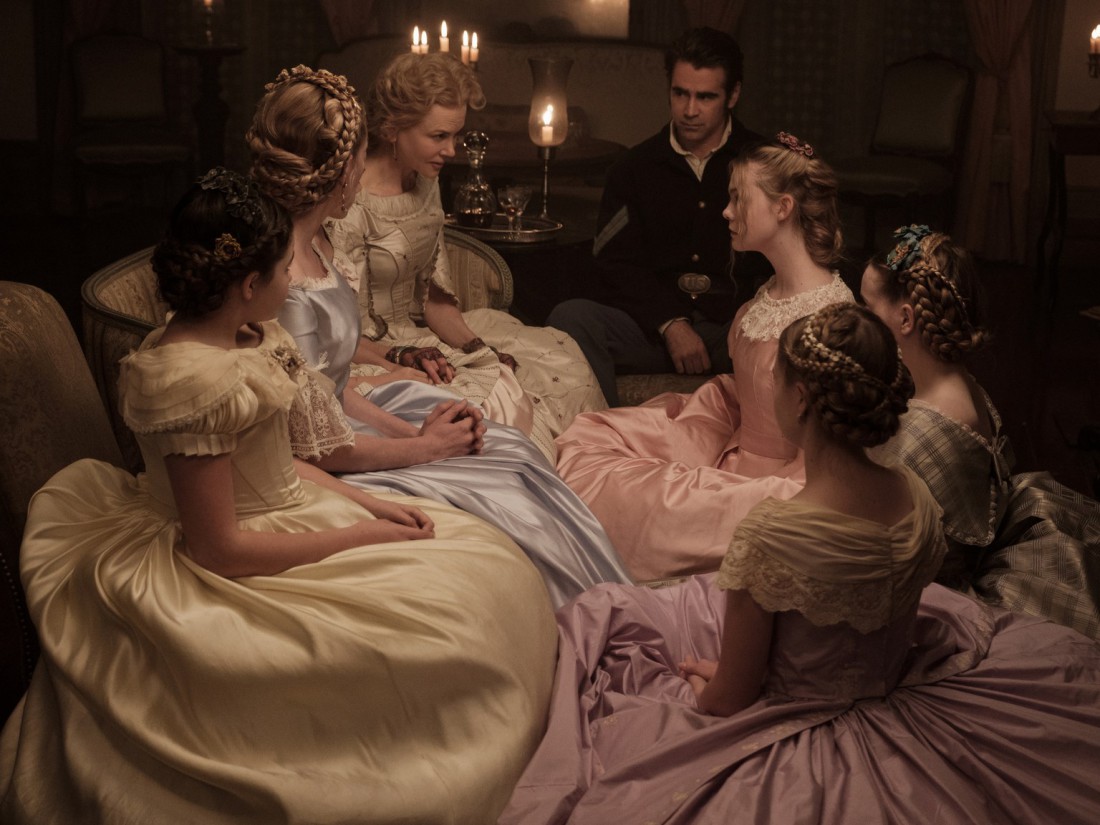
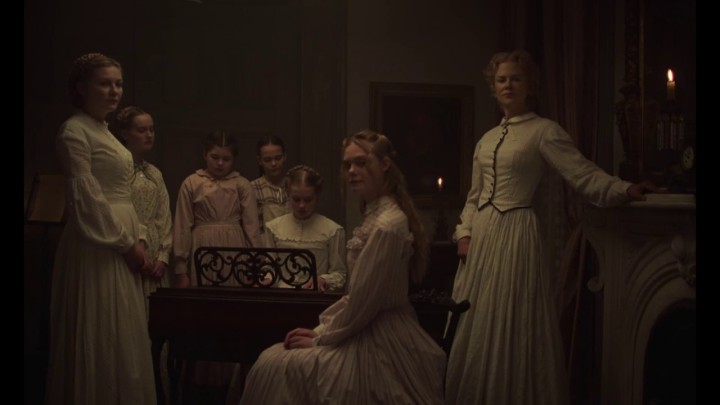
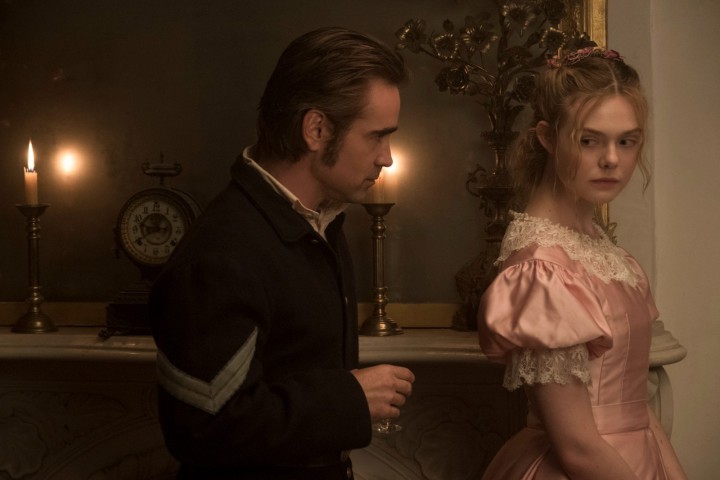

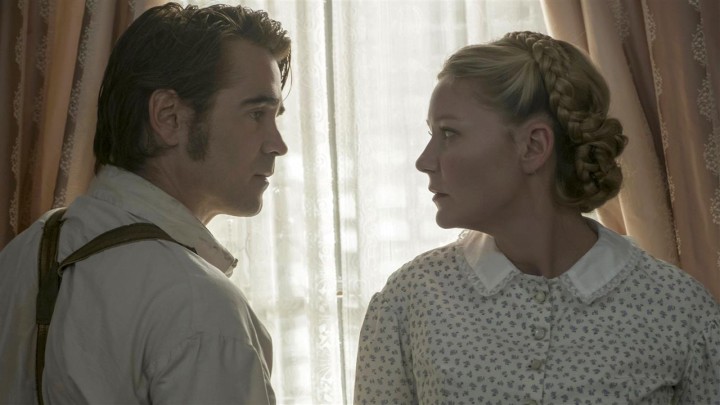
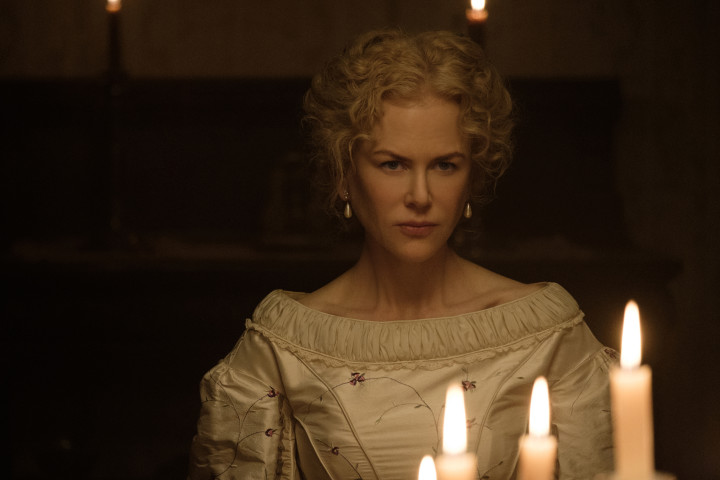

Before you comment
The comments section is here to provide a platform for civil dialogue on the issues we face together as a local community. Xpress is committed to offering this platform for all voices, but when the tone of the discussion gets nasty or strays off topic, we believe many people choose not to participate. Xpress editors are determined to moderate comments to ensure a constructive interchange is maintained. All comments judged not to be in keeping with the spirit of civil discourse will be removed and repeat violators will be banned. See here for our terms of service. Thank you for being part of this effort to promote respectful discussion.